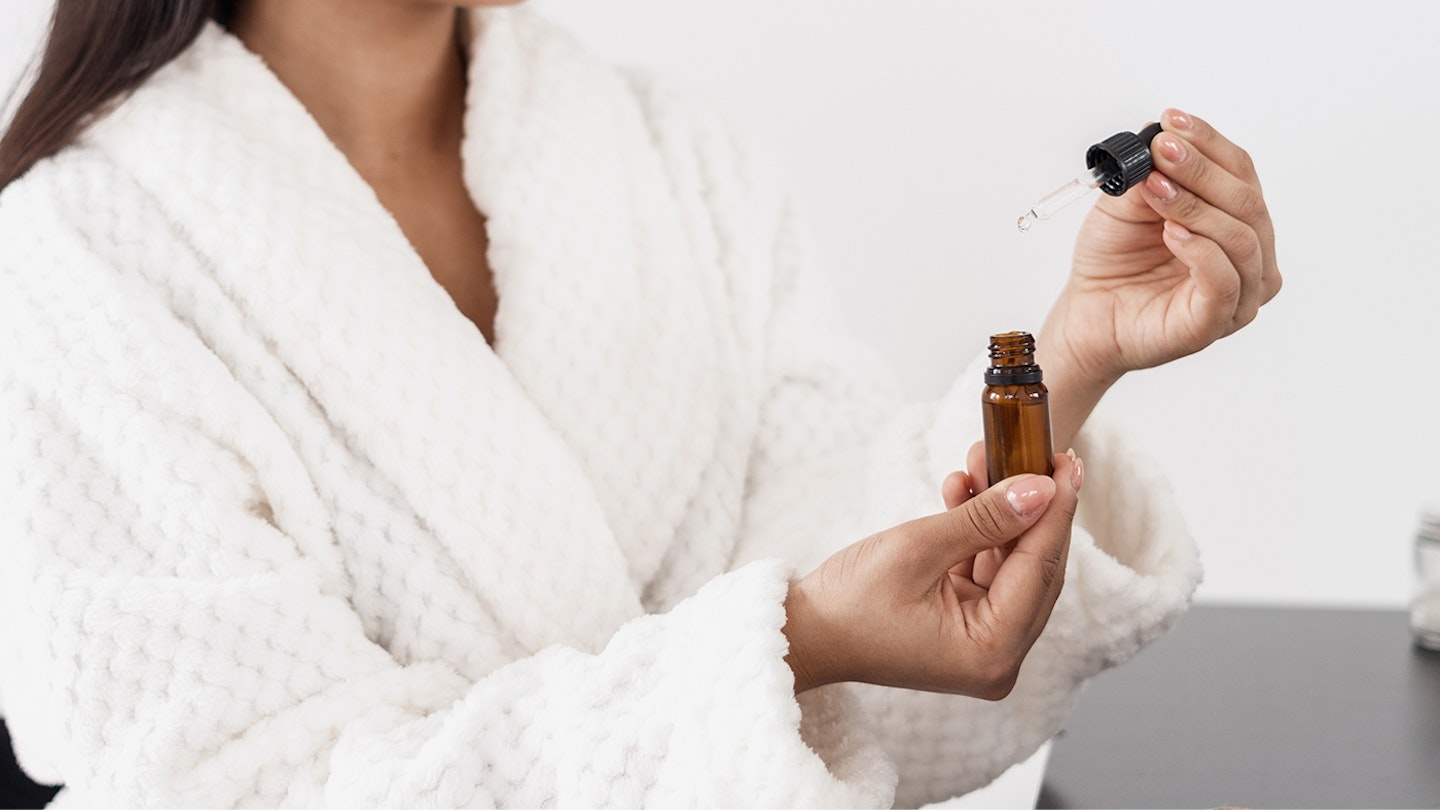You've probably heard of rose oil and its benefits, and while it's sometimes confused with rosehip oil, these two oils are very different. From reducing wrinkles to supporting collagen production, there are many rosehip oil benefits when it comes to our skin and health.
If you're intrigued by rosehip oil and want to learn more about the benefits plus the best rosehip oil to buy, we've got you covered with everything you need to know.
What is rosehip oil?

Rosehip is made from the fruit and seeds of the wild rose bush. When the roses die and are left on the bush, they leave behind a bright orange fruit which is known as rosehips. The rosehip oil is made by pressing this fruit.
While all rose bushes will produce rosehip if left untouched, the best rosehips come from the Rosa rugose and Rosa canina varieties. These are mostly found in the Andes Mountains, but they’re also grown in Africa and Europe.
Rosehip oil is known for its cosmetic and medicinal benefits and it's believed this use of rosehip oil dates back to Ancient Egypt who used it to treat skin conditions.
Rosehip oil benefits
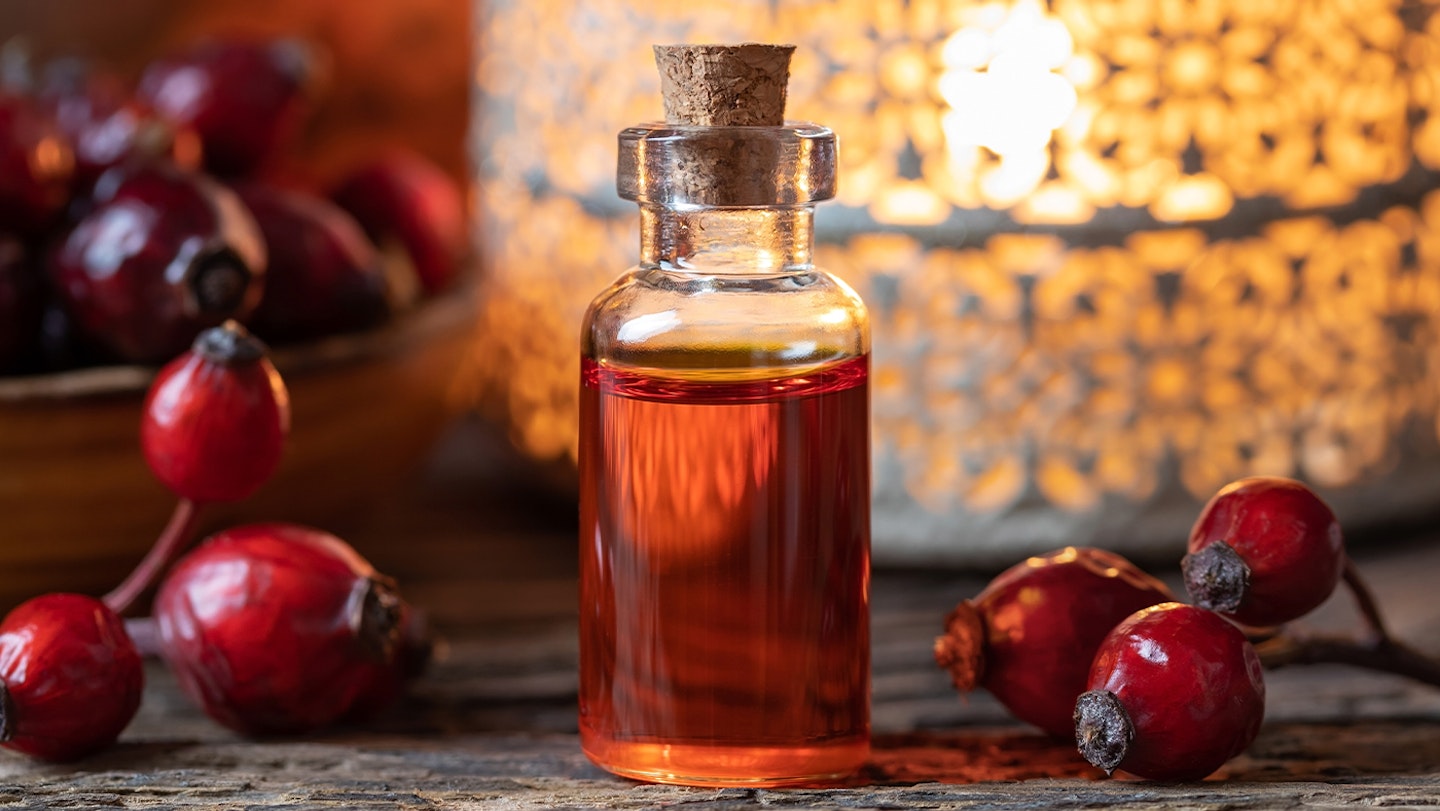
Vitamin C
The main benefit of rosehip oil is how much vitamin C it contains. It's thought to contain more vitamin C than oranges and lemons. It has many antioxidant properties and vitamin C provides a range of benefits for the skin.
Fights against acne
If you're suffering from acne caused by clogged skin pores. That's because it contains trans retinoic acid which helps your body regulate the production of new cells. Rosehip oil can help brighten the complexion, prevent blackheads and reduce any inflammation. Another acid found in rosehip oil is linoleic which can help shrink spots.
Helps eczema
As mentioned, rosehip oil can prevent inflammation, and the rosehip oil can help relieve the itching you might experience with eczema. That's because it contains phenols which contain chemicals with antibacterial properties to help fight skin conditions.
Treating wrinkles
Rosehip oil also contains vitamin A which helps build collagen and even out skin tone which helps reduce fine lines and wrinkles. As well as this, it can also help repair your skin after sun damage, reversing the signs of ageing caused by sun damage.
Even out skin tone
Adding a few drops of oil to a cotton pad and wiping it across your skin each day can help any areas of uneven skin tone, hyperpigmentation or blotchy skin to even out. If your issue is dull skin, it can also help to brighten your complexion too by tightening pores.
Scar treatment
The combination of vitamins A and C found in rosehip oil can fade any acne scars or stretch marks left on your skin as they can help rebuild collagen.
A natural exfoliator
Rosehip oil can act as a natural exfoliant of the skin, but it's best to avoid if your skin is acne prone. If you mix some rosehip oil with baking soda, it can be used as a natural body exfoliant, similar to how you would use a sugar scrub or salt scrub.
Side effects of using rosehip oil
Before trying anything new on your skin you will always need to have a patch test on your arm before applying to your face in case you have an allergic reaction to it. Leave on your skin for 24 hours and look out for any signs of a reaction. This may include a rash, itching, blisters and burning. In some rare cases you may also experience breathing difficulties, dizziness and increased heart rate.
Best rosehip oil to buy
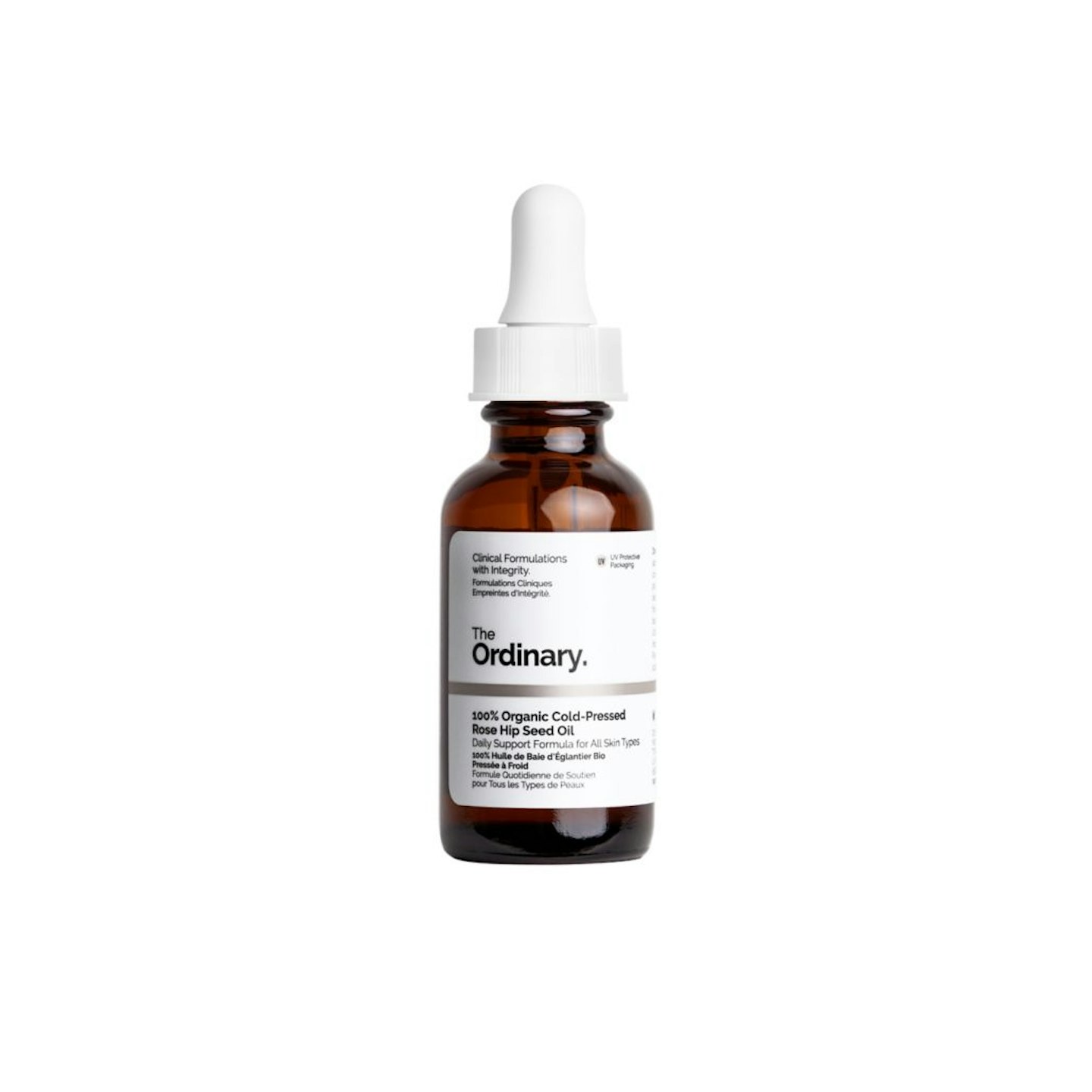
www.boots.com
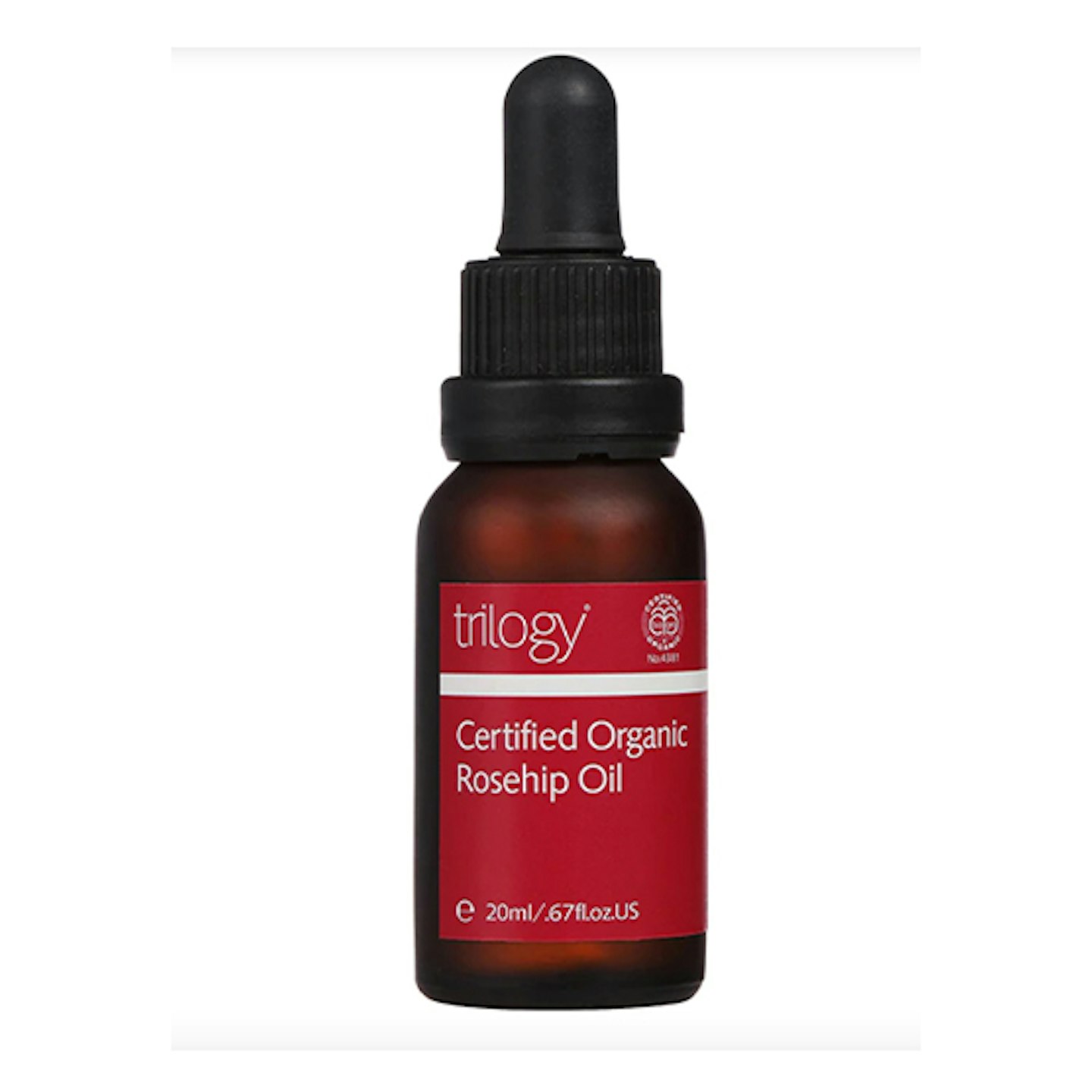
www.hollandandbarrett.com
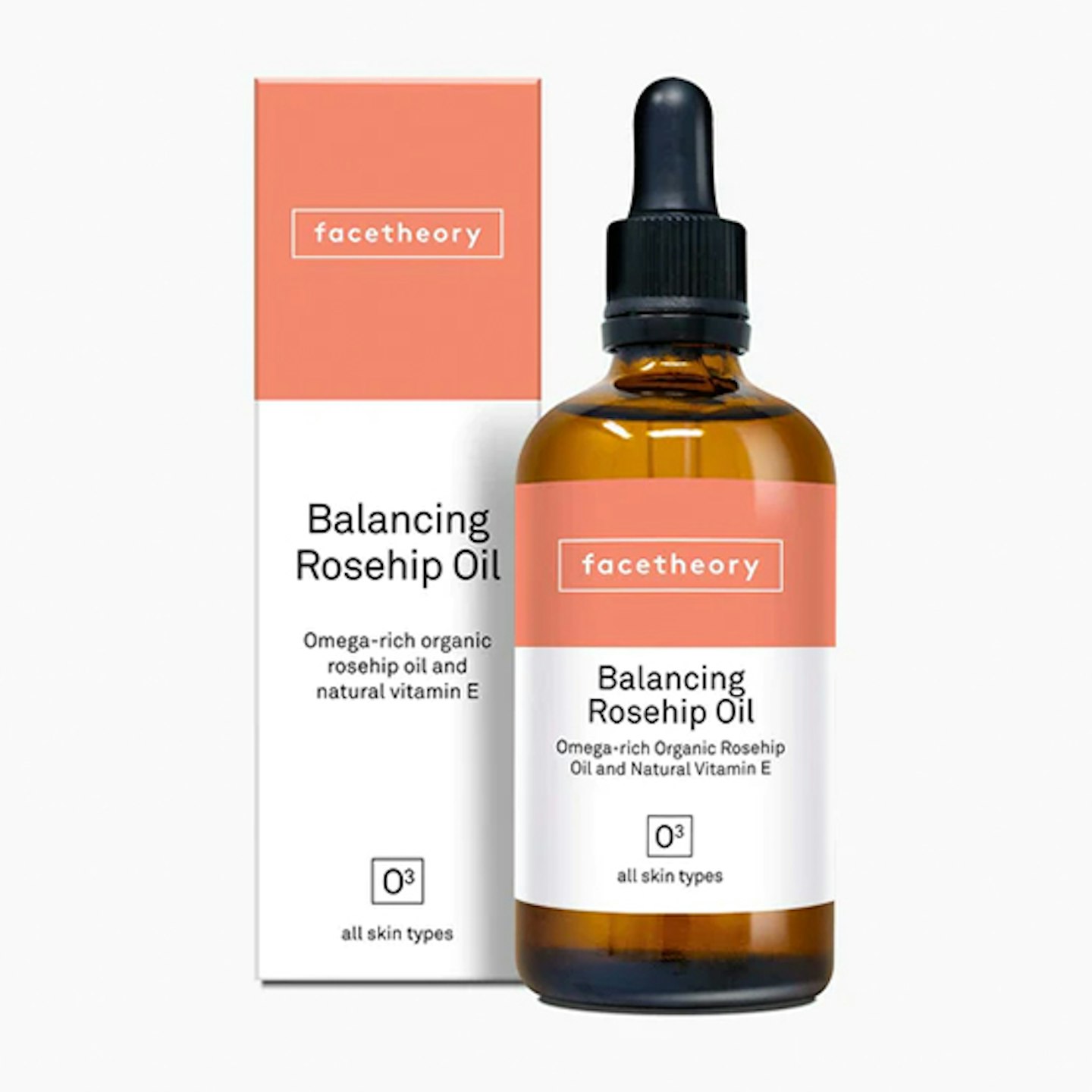
www.facetheory.com
